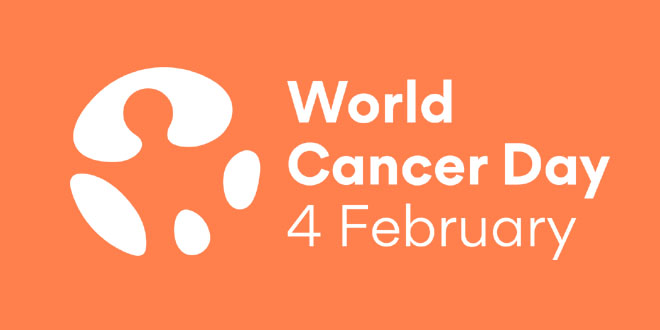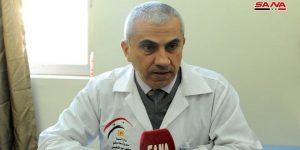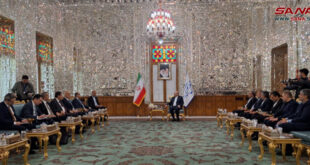Damascus, SANA – At the eve of World Cancer Day, which is marked on February 4th, figures show the growing burden cancer is placing on the world, with 18 million new cases and more than 9 million fatalities, according to the International Agency for Research on Cancer.
The latest estimations of the Agency suggest that one out of five men and one out of six women in the world will suffer from cancer during their lifetime, and one out of eight men and one out of eleven women will lose their lives due to the disease.
Despite the rising costs of treatments and the difficulties caused by the economic sanctions imposed on Syria, the Syrian health sector continues to provide free treatment services to cancer patients, including diagnosis, management, and follow-up, with the main challenge being the fact that many patients begin treatment at late stages of the disease due to various psychological or social causes.
One of the Health Ministry’s ten centers that provide free cancer treatment is Ibn al-Nafees Hospital in Damascus, which opened an oncology department in 2016 that provides surgical, chemo, hormonal, and immune therapy.
Dr. Nidal Khedr, head of the oncology department at Ibn al-Nafees, said the department has treated around 4,500 patients since its opening, at a rate of 90-100 patients and 40-60 doses per day.
Khedr said the patients who need radiation therapy are referred to Al-Bairouni University Hospital, while other services such as diagnosis, testing, and consultations are provided for free at the department.
Syria imports all types of oncology medicine, and according to Khedr the cost of treating cancer patients differs according to the type, location, characteristics, and stage of the tumor, with the least costly doses ranging from SYP 20,000 to 50,000, while some doses might cost around SYP 1.5 each, and some patients could require such doses every three weeks.
He went on to note that the most common and deadly types of cancer in Syria are lung, colon, and breast cancer, which is similar to the rest of the world.
Khedr stressed the need for raising awareness about the importance of early diagnosis of certain types of cancer, like breast, cervix, lung, and prostate cancers as this would reduce the time of treatment and increase the likelihood of recovery.
In addition to Damascus, the Health Ministry’s cancer treatment centers are located in Aleppo, Hama, Sweida, Tartous, and Homs.
Hazem Sabbagh
 Syrian Arab News Agency S A N A
Syrian Arab News Agency S A N A






